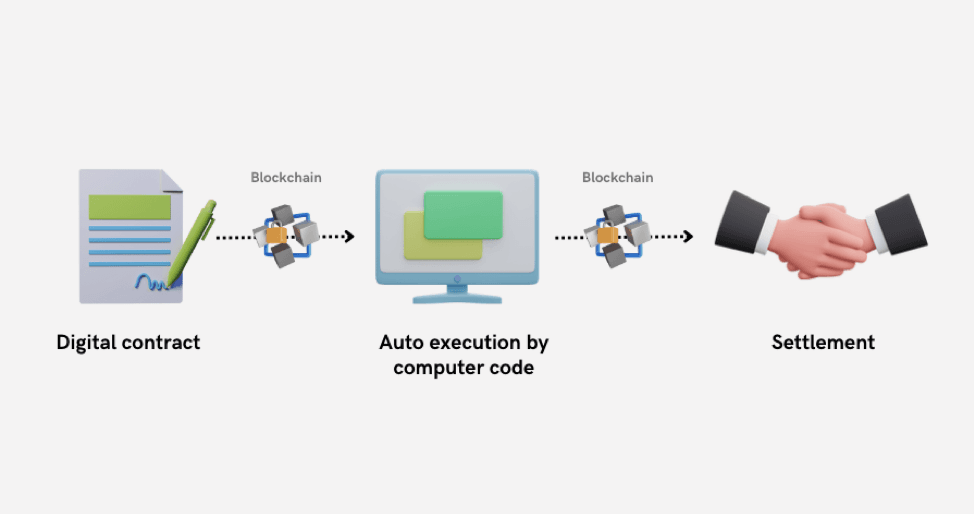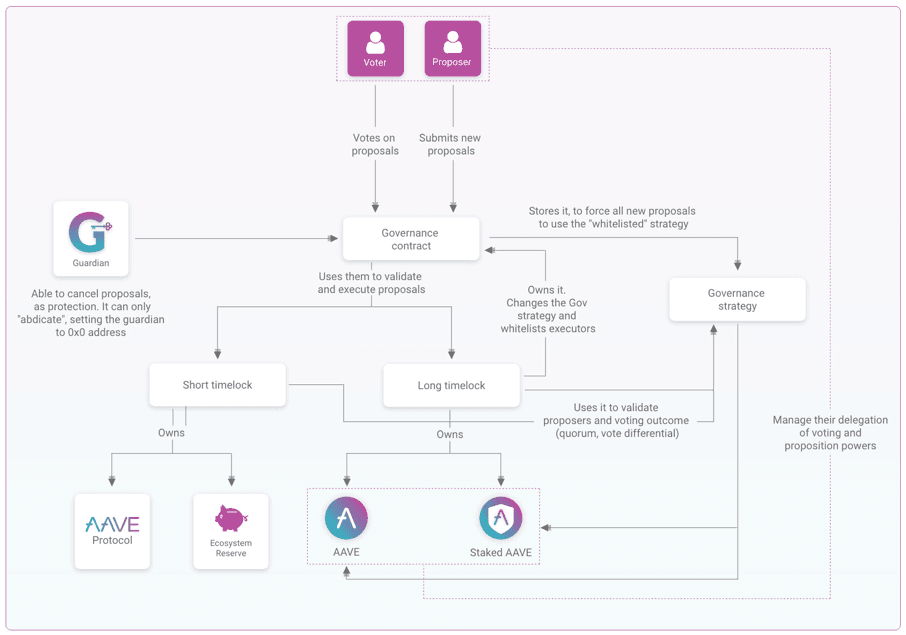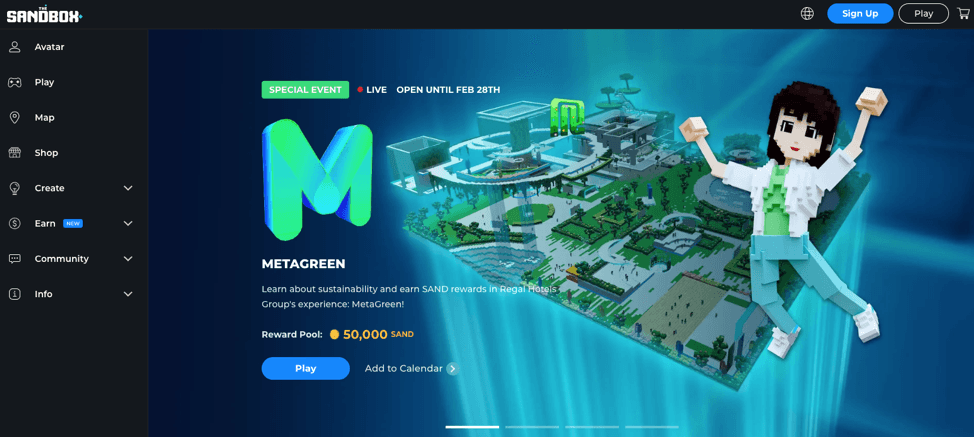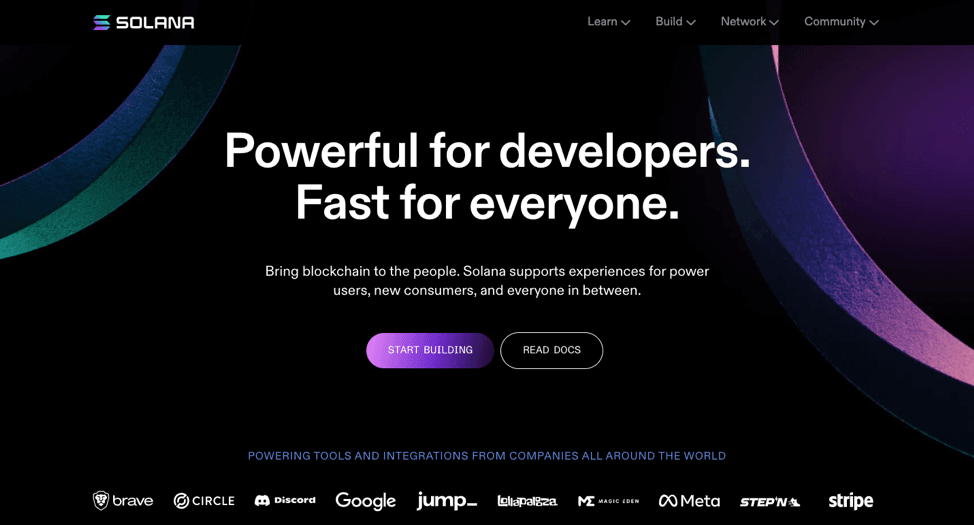What Are Smart Contracts in Crypto? An Investor’s Guide for Beginners
2023-02-01 06:11:20
What Are Smart Contracts on Blockchain?
Smart contracts are digital agreements that are encoded as code and run on a blockchain network. They establish the terms of an agreement and automatically execute them when certain conditions are met. Unlike traditional contracts, which are often manually executed by intermediaries, smart contracts are self-executing and run on a decentralized blockchain, making them transparent, traceable, and irreversible. This allows multiple parties to come to a shared agreement in a timely, accurate, and tamper-proof manner without the need for a central administrator.
Smart contracts can be used to automate a wide range of processes and transactions, including loans, insurance, logistics, and gaming. Their ability to operate independently and securely on a blockchain network makes them a powerful infrastructure for automation and peer-to-peer interactions.
Benefits of Smart Contracts: Why are smart contracts important?
Smart contracts are not only just digital contracts that are self-executing with the terms of the agreement written directly into lines of code but also these contracts have the potential to revolutionize the way we do business by offering a number of benefits, including accuracy, speed, efficiency, trust, transparency, security, and cost savings.
- ・Accuracy: One major benefit of smart contracts is their accuracy. Because the contract is immediately executed when a specific condition is met, there is no room for error. This is in contrast to traditional contracts, which often rely on manual processes and can be prone to mistakes.
・Faster Speed: Smart contracts are also faster than traditional contracts, as there is no need for paperwork or the correction of errors. This can significantly speed up the contract process and allow for quicker resolution of disputes.
・Efficiency: In addition to accuracy and speed, smart contracts offer efficiency by eliminating the need for intermediaries to facilitate transactions. This can save time and reduce the costs associated with intermediaries, such as fees and delays.
・Trust and transparency are also key benefits of smart contracts. Because the contracts are encrypted and stored on a distributed ledger, they are extremely difficult to hack or tamper with. This ensures that the terms of the contract are followed and reduces the risk of fraud or deceit.
・Security: Smart contracts also offer a high level of security, as each entry on a distributed ledger is linked to the entries before and after it. This means that hackers would have to change the entire chain to alter a single record, making it a highly secure method for conducting transactions.
Smart contracts have the potential to save companies and individuals money by eliminating intermediaries and reducing the time and costs associated with traditional contract processes which offer a number of benefits that make them a promising technology for the future of business and contract management.
How Does a Smart Contract Work?
Smart contracts are digital agreements that can self-execute when specific conditions are met, without the need for intermediaries. A blockchain network replicates and stores the code and agreements found within it. To create a smart contract, the terms of the agreement must be defined and programmed into the contract code. Once the contract is deployed onto the blockchain, it is stored and replicated on all the nodes of the network. Blockchains, a network of interconnected computers, enables the creation of smart contracts, digital agreements that can self-execute and enforce rules without intermediaries. The smart contract are written in a programming language and are transparent, publicly verifiable and allow any interested party to see the logic behind the contract.

As traditional contract, conventional contracts, are legally binding agreements between two parties, which are established through written documents that outline the terms of the relationship. If a party, Party A, breaches the terms of the agreement, Party B may seek legal recourse through the court system. However, in contrast, a smart contract is a digital agreement that is encoded to automatically enforce the rules of the agreement without the need for third-party involvement or legal intervention. This fortifies the agreement and ensures compliance through automation.
The execution of a smart contract is contingent upon the fulfillment of all pre-agreed upon conditions between the parties involved. Being a computer program, smart contracts are inherently resistant to tampering or alteration by malicious actors. Upon satisfaction of the predefined conditions, the payment mechanism within the smart contract is automatically activated and processed by the blockchain network, ensuring the security and integrity of the transaction.
For example, if the contract is set up to transfer a certain amount of cryptocurrency from one party to another upon receipt of a product, the transfer will occur automatically once the product is delivered.
Since the contract is stored on a decentralized network, it is transparent and immutable, meaning that it cannot be altered or deleted. This adds an additional layer of security and trust to the contract. The use of smart contracts can help to streamline and automate contract processes, reducing the risk of errors or disputes and increasing the efficiency and security of transactions.
Use Cases of Smart Contracts
Smart contracts are tamper-proof digital programs on blockchains that facilitate the execution of specific actions based on predefined conditions. They are designed with a logical structure of "if/when x event occurs, then execute y action." A single smart contract can have multiple conditions and a single application can utilize multiple smart contracts to support an interconnected set of processes.
In practice, the application of smart contracts varies across different industries, depending on the specific use cases adopted by companies within each sector. It is important to examine the specific industries and their respective use cases of smart contracts.
Finance Service
In the realm of decentralized finance (DeFi), smart contracts are utilized to replicate traditional financial products and services, such as money markets, options, stablecoins, exchanges, and asset management. Additionally, smart contracts enable the creation of new financial primitives through permissionless composability. Smart contracts function as escrow for user funds, distributing them among users based on predefined conditions. For instance, Aave leverages smart contracts to enable lending and borrowing in a decentralized and permissionless manner, with the funds stored in a transparent and audited smart contract, and the option to withdraw or trade their lender position as a tokenized asset.

Source: Aave protocol
Gaming Industry
The integration of blockchain technology in the gaming industry has led to the creation of new and innovative game mechanics. The decentralized design of new Web3 applications, such as GameFi, promotes transparency, equity, and inclusivity. Participants can engage in these activities without the need to disclose personal information, and all contributors have a say in the direction of the platform through proposals and voting. Moreover, rewards and reputation-based systems allow for earning potential over time. As the reputation system continues to evolve in Web3, it can potentially be utilized for other opportunities such as uncollateralized loans or credit rating improvements. Security measures, such as flagging suspicious crypto addresses, can also be implemented.
GameFi, a term derived from the combination of "game" and "finance," seamlessly integrates blockchain technology and the use of smart contracts, including NFTs, cryptocurrencies, and decentralization, with advanced gaming mechanics to create virtual environments in which players can generate income through their gaming experience. This model, known as Play-to-Earn, offers economic incentives such as tokens, upgrades, avatars, virtual land, and more, to players who complete game-related tasks such as creating original content, mining resources, progressing through levels, and engaging in player-versus-player battles. There are a number of GameFi games that have gained popularity in the blockchain gaming space, such as The Sandbox, Axie Infinity, Legends Reborn, Illuvium, and StepN, among others. These titles have established themselves as leaders in the industry by offering a combination of engaging gameplay and economic incentives for players.

Source: The Sandbox official website
NFTs Industry
Another application of blockchain technology with smart contracts is the use of limited-edition non-fungible tokens (NFTs) to ensure fair distribution models. NFTs can be implemented within smart contracts. NFTs are a type of digital asset that represents ownership of a unique item, such as a digital artwork or in-game item. They are built on top of blockchain technology and are typically implemented using smart contracts. The smart contract defines the rules and properties of the NFT, such as its unique identifier, ownership, and transferability. This allows for the creation of a decentralized and trustless system for the buying, selling, and ownership of unique digital assets.
Research studies have shown that NFTs in smart contract have a great potential to revolutionize the way digital assets are created, traded and managed. NFTs smart contracts enable creators to monetize their digital assets, and also provide a way for consumers to own and trade these assets in a trustless and decentralized way. Additionally, smart contracts can be used to automate the distribution of royalties to creators, and also to provide a transparent and verifiable record of ownership, provenance and transfer history.
The most famous one could be Beeple's artwork "Every day: The First Five Thousand Days" was, until the end of 2021, the most expensive NFT art sold, until artist Pak's "The Merge" sold for $91.8 million. However, "The Merge" was not bought by one individual, but rather by 29,983 people, with the NFT being split into 312,686 coins distributed to buyers. This Beeple's artwork is a unique collection of all 5,000 images he drew over 5,000 days in a row, auctioned by the famous Christie house for $69 million and was bought by Vignesh Sundaresan, who outbid Justin Sun, the founder of Tron.

Everydays: The First 5000 Days: USD 69.3 million
Source: Christie’s website
Smart contracts have a wide range of use cases, from simple economic transactions such as moving money from point A to point B, to complex smart access management in the sharing economy. Smart contracts have the potential to disrupt many industries such as banking, insurance, energy, e-government, telecommunications, music business, art, mobility, education, and many others. They allow for automation of processes, increased transparency and trust, and the ability to create decentralized and trustless systems.
Which Coin is Smart Contract?
Ethereum is the most popular smart contract platform. Ethereum was developed as a decentralized, open-source platform that allows developers to create and deploy smart contracts and decentralized applications (dApps) on its blockchain network. It has a built-in programming language called Solidity which enables developers to write smart contracts and dApps on the Ethereum blockchain. Ethereum's smart contract functionality is one of the main reasons it is so popular among developers and is considered the backbone of the decentralized finance (DeFi) ecosystem. Other cryptocurrencies such as EOS, TRON, and Binance Smart Chain have also smart contract capabilities and are being used as well.

Source: Cardano website
Cardano, a proof-of-stake blockchain project launched in 2017 by Ethereum co-founder Charles Hoskinson, utilizes a unique two-layer structure to facilitate the execution of smart contracts. The Cardano Computing Layer allows for the creation and execution of decentralized applications (dApps) and decentralized finance (DeFi) projects through the use of smart contracts. This feature enables the development of a wide range of decentralized applications on the Cardano blockchain, further expanding its potential use cases and increasing its utility.
The utilization of the Cardano blockchain for decentralized application (dApp) development is demonstrated by the presence of over 1,000 dApps currently running on its network. This highlights the platform's appeal to developers seeking to create solutions that provide utility to the blockchain ecosystem. Additionally, Cardano has potential for implementation in enterprise-level use cases, such as identity verification for financial organizations and anti-counterfeiting measures for businesses in the retail industry.

Source: Solana website
Solana is a highly attractive platform for smart contract development owing to its exceptional speed and low transaction fees. The network boasts a throughput of approximately 65,000 transactions per second, with an average of around 3,000 transactions per second. Furthermore, Solana's sub-second transaction times make it an ideal choice for high-frequency and high-volume operations. This high speed and capacity have led Bank of America analysts to suggest that Solana has the potential to become the "Visa of the digital asset ecosystem." Solana attains its high performance through the implementation of a mechanism called "proof of history", which organizes and batches transactions prior to their validation through a proof-of-stake consensus mechanism. Furthermore, Solana's network had almost 2,000 validators as of July, making it one of the most decentralized smart contract platforms outside of Ethereum.

Source: VeChain website
VeChain, originally an ERC20 token on the Ethereum blockchain, transitioned to its own blockchain in 2018. Since then, the blockchain has established partnerships with some of the world's largest corporations, providing smart contract-based solutions to track, automate, and account for goods as they move through supply chains. This is especially valuable in today's globalized world where products change hands multiple times before being purchased.
Notable brands that have partnered with VeChain include automaker BMW, which uses VeChain to manage data such as mileage, repairs, and additional services of a vehicle. Walmart in China employed VeChain as part of a traceability program to promote transparency for consumers to know exactly where their food is coming from. Pharmaceutical giant Bayer tapped VeChain to build an application that tracks clinical drugs as they move through the supply chain. The world's No.1 electric-vehicle maker, BYD, uses VeChain to track carbon credits for drivers.
Conclusion for Smart Contracts in Crypto
The utilization of smart contracts, particularly those powered by pre-defined requirements, has the potential to revolutionize the execution of relatively simple contracts that can be automatically written and executed when specific conditions are met. This is particularly evident in the realm of residential conveyancing, where the release of completion funds can be automated upon the signing of contracts.
The adoption of smart contract platforms by businesses worldwide has the potential to significantly reduce administrative costs and streamline supply chain and customer interactions. This reduction in human involvement can also free individuals and decision-makers from dealing with routine tasks, allowing them to focus on their core responsibilities.
It is worth noting that smart contracts are already being employed by various financial institutions and insurance companies in their day-to-day operations, providing evidence of their effectiveness in real-world scenarios. This trend towards the adoption of smart contracts is likely to continue, with the technology becoming increasingly integrated into our everyday lives and routines. However, it is important to note that the full integration of smart contracts into every aspect of our lives is likely to be a gradual process, if it ever occurs.
FAQ
What are the top 3 smart contract cryptos not built on Ethereum?
The smart contract platforms that are alternatives to Ethereum are Cardano, Solana, and VeChain. Cardano utilizes a proof-of-stake consensus mechanism and a unique two-layer structure for its smart contracts. Solana is known for its high performance and fast transaction times. VeChain provides traceability and automation solutions for goods as they move through supply chains. These platforms are gaining popularity among developers and businesses for their unique features and capabilities.
What are examples of blockchain smart contracts?
Smart contracts is the digital agreement that can be executed automatically when certain conditions are met. They are used in various industries such as cryptocurrency, supply chain management, gaming, crowdfunding, insurance, real estate, voting and healthcare for automation, transparency, security and streamlining of the process. They can be used to track and verify the origin of goods, automate claim process, record property ownership and validate voter's identity.
What crypto has the best smart contracts?
Ethereum is the leader in smart contract functionality among cryptocurrencies, with a large developer community and robust ecosystem of decentralized applications built on its Solidity programming language. Ethereum 2.0 is an upgrade under development to improve performance, scalability and security. Other blockchain platforms also support smart contracts, but Ethereum is the most mature and widely adopted option.
This is not an investment advice. Please conduct your own research when
investing in any project.